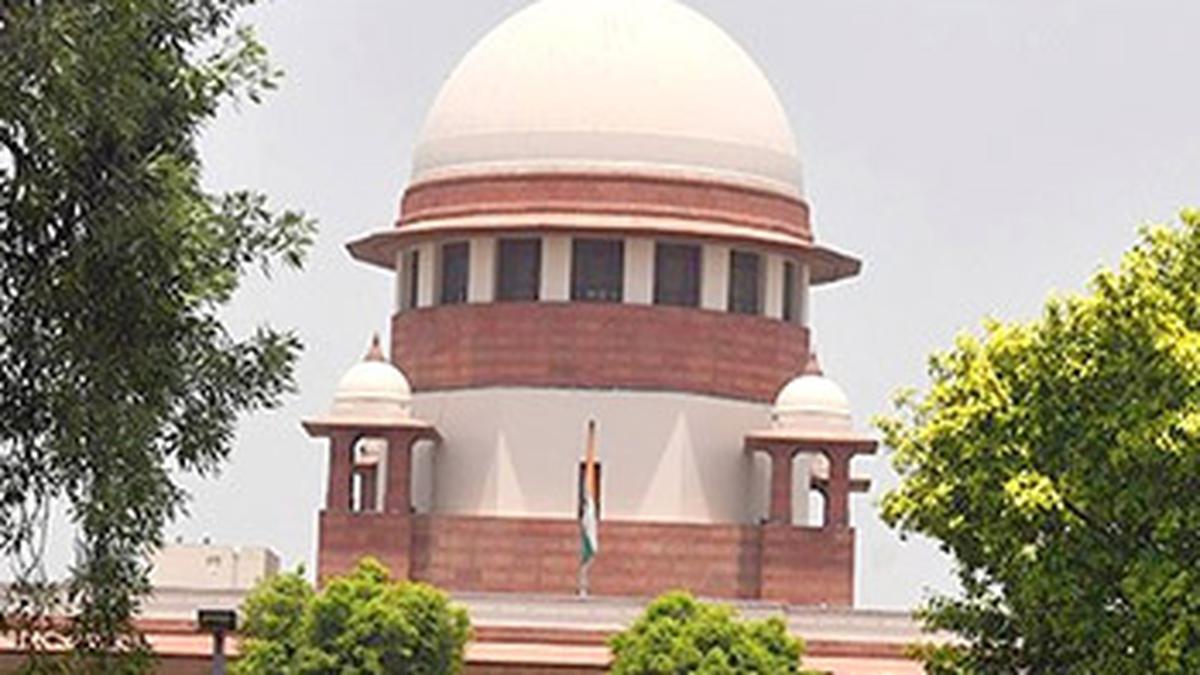
Administration of oath to Justice Umesh Kumar as DERC chairperson stands deferred: SC
The Hindu
The Supreme Court on July 4 deferred the oath taking ceremony of DERC chairperson-designate Justice (retd) Umesh Kumar and sought responses from the Centre and the office of the Lieutenant Governor on a plea of the Delhi government challenging the law governing such an appointment.
The Supreme Court on July 4 deferred the oath taking ceremony of DERC chairperson-designate Justice (retd) Umesh Kumar and sought responses from the Centre and the office of the Lieutenant Governor on a plea of the Delhi government challenging the law governing such an appointment.
“The administering of oath to the former judge of Allahabad High Court (as DERC chairperson) stands deferred,” said a Bench comprising Chief justice D. Y. Chandrachud and Justice P. S. Narasimha.
The top court also issued notices to the Centre and the office of the LG on the plea which also challenged the notification issued by the Ministry of Home Affairs appointing Justice Kumar as the DERC (Delhi Electricity Regulatory Commission) chairperson.
The court has now fixed the plea of the Delhi government for hearing on July 11 and asked the Centre and others to file their responses to the petition a day before.
On July 3, Lieutenant Governor V. K. Saxena had advised Chief Minister Arvind Kejriwal to complete the oath taking exercise of Justice Kumar through video conferencing, after the event was postponed due to Power Minister Atishi's "ill health".
The appointment of the DERC chairperson has led to a power tussle between the Delhi government and the office of the LG.

“Writing, in general, is a very solitary process,” says Yauvanika Chopra, Associate Director at The New India Foundation (NIF), which, earlier this year, announced the 12th edition of its NIF Book Fellowships for research and scholarship about Indian history after Independence. While authors, in general, are built for it, it can still get very lonely, says Chopra, pointing out that the fellowship’s community support is as valuable as the monetary benefits it offers. “There is a solid community of NIF fellows, trustees, language experts, jury members, all of whom are incredibly competent,” she says. “They really help make authors feel supported from manuscript to publication, so you never feel like you’re struggling through isolation.”

Several principals of government and private schools in Delhi on Tuesday said the Directorate of Education (DoE) circular from a day earlier, directing schools to conduct classes in ‘hybrid’ mode, had caused confusion regarding day-to-day operations as they did not know how many students would return to school from Wednesday and how would teachers instruct in two modes — online and in person — at once. The DoE circular on Monday had also stated that the option to “exercise online mode of education, wherever available, shall vest with the students and their guardians”. Several schoolteachers also expressed confusion regarding the DoE order. A government schoolteacher said he was unsure of how to cope with the resumption of physical classes, given that the order directing government offices to ensure that 50% of the employees work from home is still in place. On Monday, the Commission for Air Quality Management in the National Capital Region and Adjoining Areas (CAQM) had, on the orders of the Supreme Court, directed schools in Delhi-NCR to shift classes to the hybrid mode, following which the DoE had issued the circular. The court had urged the Centre’s pollution watchdog to consider restarting physical classes due to many students missing out on the mid-day meals and lacking the necessary means to attend classes online. The CAQM had, on November 20, asked schools in Delhi-NCR to shift to the online mode of teaching.









